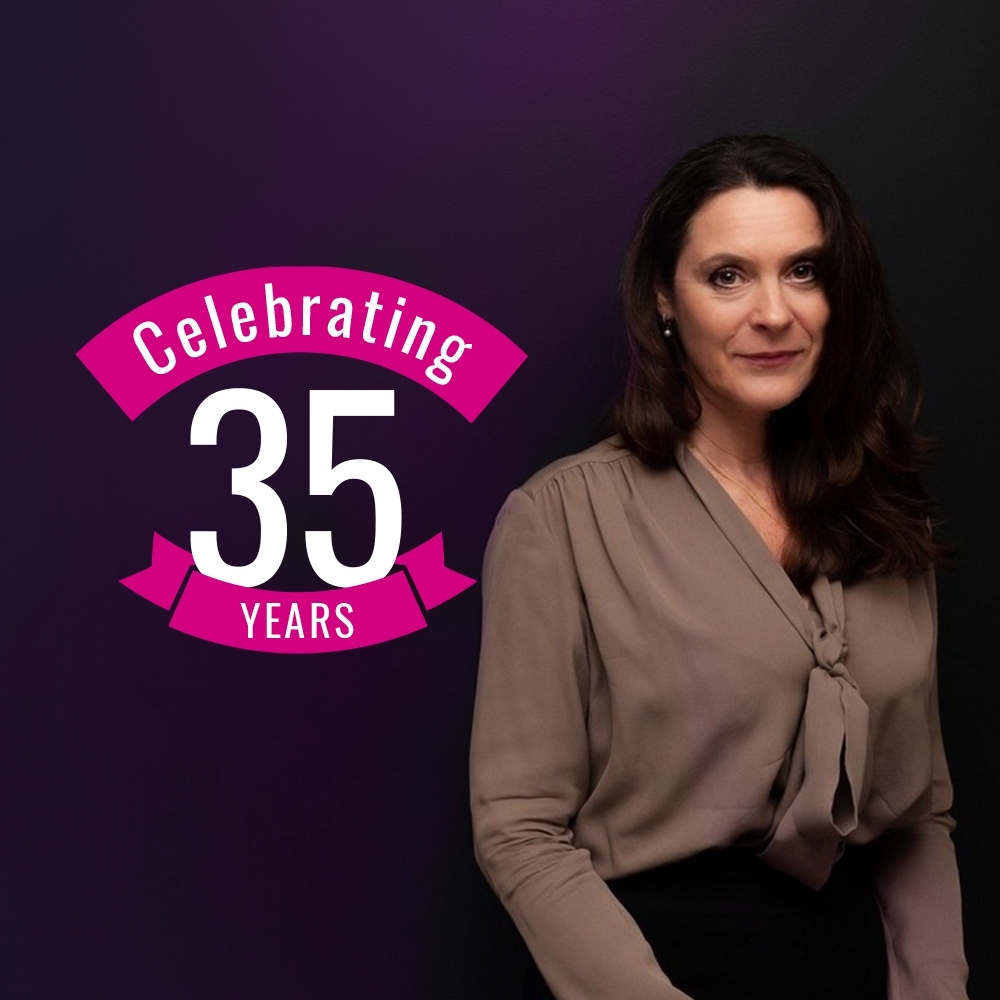04.01.2021
Starting the firm in 1988.
Thank you
When David Keltie established the firm in December 1988 and asked me to join as his first member of staff, we wanted to create a firm that put people first. It would be somewhere like minded people who love doing their job would come together. We worked hard to build an atmosphere without undue pressure and scapegoating, as both seemed counter-productive and not part of the culture we were trying to establish.
Our aim - and I am happy to say that we certainly succeeded - was to create an environment where all staff from fee earners to support were happy, approachable and engaged with the direction the firm was headed. Cliched though it might sound, it is still the case now as it was then, that we look forward to starting work the next morning - this is something which has been a cornerstone of the firm for three decades.
When we opened the doors, there were only two fee earners - David and myself - and we quickly set about trying to win new clients and work for the firm. As the country entered recession, we relied upon work from clients in the USA, Japan and Australia, many of whom had tracked David down thanks to his exceptional reputation. We gradually built up a client base and it is testament to the quality of both our culture and our work that many of our first clients still work with us today.
David was driven by giving people opportunities and taking a genuine interest in their careers, both prior to joining Keltie and their progression within the firm. He trusted people to prove themselves with a degree of licence to develop their practice in areas which interested them. This has meant that our breadth of expertise is extensive and that our colleagues are engaged with and take genuine joy from working with their clients on world-leading innovation projects. Then as it is now, with every new client win, every new piece of work, we celebrate as a firm in the knowledge that we were growing and developing together. In every role, we all contribute to the value of the firm and we take inspiration from the same beliefs as the first day we opened.
At the time, the landscape was very traditional. We were maverick in our approach from the beginning, even down to the fact that we had a logo. We were one of the first to break off into a modern style of approach, determined to prove ourselves not just with the quality of work but the quality of relationships we built with clients.
Our people-first culture did not really exist within the sector - many firms operated very traditional models with strict hierarchies and processes which had not been changed for decades. Having worked with a technology company who were very people-centric, with an inspired and happy workforce, David was driven to create the same culture at Keltie.
From the beginning, we understood that every person in the firm is as important as everyone else. We were not going to be bound by the traditional structures found in many legal firms - every role is valuable and nobody is above another. We wanted everyone to be involved in the operations of the firm - all staff would be invited to attend conferences and networking events, whether they were fee earners or not. We encouraged a learning culture built upon developing lasting relationships built on a personal level with our clients, both existing and prospective.
The industry has certainly changed over the last three decades. We have seen a move away from more traditional ways of working, even in larger firms. Many smaller firms have opened as a result of spin offs from larger businesses, perhaps in line with for example, technology companies wanting to work with younger, more agile firms.
The firm has undoubtedly changed over the last thirty-two years. There is the obvious evolution from opening the doors with two members of staff to the team over over ninety we have today. Advances in technology and the arrival of the internet certainly played a huge role in transforming the business, and we are still evolving processes as new software develops to make our operations more effective and efficient for our clients. Throughout that growth and the various transitions the firm has been through, the core culture has remained the same and we are very proud of that. We have not diverted from our founding principles in search of profit or to increase our headcount unnecessarily in order to compete with larger firms.
To have got to where we are today from where we began brings a huge sense of pride to everyone in the business. The way we look after our staff, encourage and inspire them is the same as it was in 1988 - it is ingrained within the business. Even in a constantly-evolving industry, working on cutting-edge technologies and scientific advancements, we have retained many of our ‘original’ members of staff and that speaks volumes not only to the client portfolios we have the privilege of working on, but the fact that our culture comes first.
The most important factor is that we retain and maintain the culture of the firm. It is what set us apart from the very beginning and something we all work extremely hard to protect and promote. We continually aim to attract the best talent the industry has to offer, but place ‘fit’ within the business in equal standing as academic qualifications and professional experience. We make no secret that not everyone is a ‘Keltie person’ but we have worked hard to build a business that continues to satisfy ambitious people and give them long-lasting, fulfilling careers.
Despite challenges - be they industry, system, legal or process - we have maintained our people-centric focus and will continue to do so. David always looked for energy within the team, valuing good people with ideas which were always welcomed. No matter how technology changes, how the firm grows or how the profession evolves, we will always strive to keep this a major part of Keltie.

05.06.2024
Championing Diversity: Jesús Enrique Vargas Millan on Pride Month at KeltieDiscover Jesús Enrique Vargas Millan's story and Keltie's commitment to creating an inclusive workplace in our latest article.

05.12.2023
Keltie turns 35: A journey of innovation and excellence with Rosemary CardasHaving started her career in 1986 with an established trade mark and patent attorney firm, Rosemary joined David Keltie in founding David Keltie Associates, (now Keltie) in 1988. She became partner in 1994. She is a Chartered Trade Mark Attorney and a Member of the Chartered Institute of Trade Mark Attorneys
Thank you